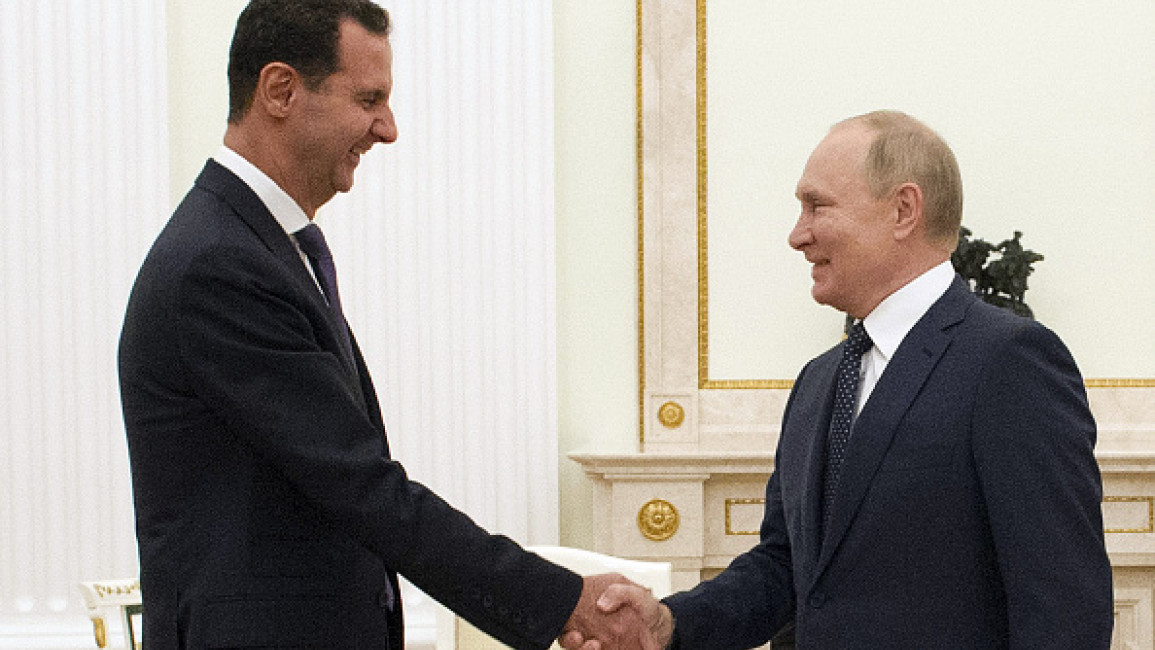Syria to ration wheat, basic goods in response to Ukraine crisis
Syria's Council of Ministers announced on Thursday that it would ration reserves of basic goods such as wheat, sugar and cooking oil in anticipation of supply shocks from the Russian invasion of Ukraine.
The Council of Ministers said that it would also limit public spending as it expected global commodity prices to rise. Wheat prices already jumped dramatically this week after news of Russian troops entering Ukraine roiled global markets.
Ukraine and Russia, known as the breadbasket of Europe, supply almost a 30 percent of the world’s wheat export, along with other key commodities such as corn and natural gas.
The Middle East – and Syria in particular – is a major importer of both countries’ wheat.
“Syria is highly dependent on Russia in terms of wheat supply. If the prices of wheat continue to increase and trade flows between Russia and Syria get disrupted, Syria will be seriously impacted,” Benjamin Fève, a researcher with the economic publication the Syria Report, told The New Arab.
Last year’s wheat harvest was the lowest in 50 years, according to the UN. Wheat production in Syria was less than half of what it was in 2020, due to a combination of drought and increasing costs of inputs.
The result is rising prices in bread – a staple product in impoverished Syria, where the cost of the average food basket is more than double the minimum wage. Although the government provides subsidised bread to a portion of its population, there are often shortages and residents complain of sub-par quality of the loaves compared to privately sold bread.
In the wake of rising prices and declining economic conditions, famine-like conditions have developed, with over 12.4 million people classified as “food insecure”, according to the World Food Program’s latest update.
Most of Syria’s supply of wheat is grown in northeast Syria, which is under the control of the US-backed Kurdish-led Syrian Democratic Forces (SDF). The Syrian government is able to purchase a portion of this wheat, but not nearly enough to satisfy domestic demand.
“Syria’s wheat reserves have decreased from 800,000 to 200,000 tonnes between 2020 and 2021. They had to import 1.5 million tonnes of wheat last [year], most of which came from Russia,” said Fève, the Syria Report researcher.
He added that, if wheat imports from Russia are interrupted, there would “most definitely” be an increase in the price of bread in Syria.
Syria is not the only country in the Middle East potentially affected by interruptions to commodity exports from Russia.
US Ambassador to the UN Linda Thomas-Greenfield recently said that countries like Lebanon, Libya and Yemen may starve if wheat supply from Russia and Ukraine is cut off. Egypt reportedly imports 70 percent of its wheat from the two countries.



